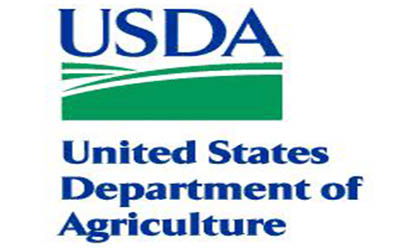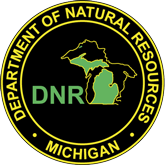
Press Release
FOR IMMEDIATE RELEASE: April 15, 2021
CONTACT: Bob Wheaton, 517-241-2112, wheatonb@michigan.gov
Michigan overdose deaths decrease again in 2019, with a greater decline than in 2018
Opioid overdose deaths also decrease as state efforts pay off
LANSING, Mich. – Michigan is reporting its second consecutive year of decreasing opioid overdose deaths and drug overdose deaths overall – showing the progress that has been made under the state’s comprehensive efforts to combat the national epidemic.
The Michigan Department of Health and Human Services (MDHHS) announced today that in 2019 there were 2,354 overdose deaths in Michigan, 1,768 of which were opioid-related.
Overall overdose deaths declined by 9.4% from the 2,599 in 2018 – a number that is now below what was seen in 2016.
Opioid-related overdose deaths decreased by 13.2% from the 2018 total of 2,036 – a greater decline than the more modest gain the previous year.
However, preliminary data for January-June 2020 show 1,340 overdose deaths – up from 1,155 in those same months in 2019, an increase of 16%. Similarly, opioid-related overdose deaths increased from 874 in the first half of 2019 to 1,045 in the same period in 2020, an increase of 20%. The 2020 deaths are likely to be underreported due to incomplete data.
“Our efforts to prevent opioid misuse, provide high-quality recovery treatment and reduce the harm caused by opioids to individuals and their communities are paying off,” said Dr. Joneigh Khaldun, chief medical executive and chief deputy for health for MDHHS. “We have made significant progress, however, our preliminary 2020 data is showing there may have been an uptick in deaths last year. This illustrates that there is much more work to do and we will not rest until we have made further progress in addressing an issue that has devastated far too many families.”
Michigan has a plan in place that calls for cutting opioid-related overdose deaths by half in five years by 2024.
In 2019, the age-adjusted opioid overdose death rate decreased from 21.2 deaths per 100,000 residents in 2018 to 18.2 deaths per 100,000 residents in 2019.
However, Michigan had an increase in deaths due to psychostimulants with abuse potential including methamphetamine. More than 200 Michiganders died from an overdose involving psychostimulants with abuse potential in 2019, which was a 21% increase from the previous year.
The decline in opioid-related overdose deaths in 2019 was largely driven by decreases in the number of deaths due to poisoning by heroin and commonly prescribed natural and semisynthetic drugs such as oxycodone, hydrocodone, hydromorphone and oxymorphone. Drug poisoning deaths involving synthetic opioids such as fentanyl declined slightly.
Despite overall progress in decreasing overdose deaths in 2019, the data show troubling disparities across racial groups. “MDHHS is firmly committed to ensuring equitable access to prevention, treatment, and harm reduction, and is taking targeted steps to address racial disparities,” Khaldun said.
Michigan’s 2019 data shows:
- Overall overdose mortality rates among white residents decreased by 12.9 percent, while rates among Black residents increased by 2.7 percent.
- Opioid overdose mortality rates among white residents decreased by 16.9 percent, while rates among Black residents increased by 0.8 percent in 2019.
- Michigan residents of races other than Black or white experienced a 22.1 percent decrease in overall overdose mortality and a 20.2 percent decrease in opioid overdose mortality.
The state is using every available tool to combat the opioid epidemic. The collaborative efforts of state agencies are amplifying Michigan’s efforts related to prevention and treatment of patients, education of health professionals and enforcement of over-prescribers.
Gov. Gretchen Whitmer, MDHHS and other members of the Michigan Opioids Task Force recently announced a slate of steps the state is taking to combat the opioid epidemic. At the end of 2020, the task force reviewed and revamped to produce the 2021 Opioids Strategy that maintains focus on 2020 priorities while increasing focus on reducing racial disparities. The strategy has outlined seven strategic pillars: 1) prevention, 2) expanding access to treatment, 3) harm reduction, 4) data and 5) equity, along with efforts targeted to population at heightened risk of overdose, 6) pregnant women and new mothers, and 7) criminal justice-involved populations.
Efforts include:
- Launching public media campaigns to educate Michiganders on opioid risks, reduce stigma, and increase awareness of harm reduction services.
- Expanding funding of emergency-department based Medication-Assisted Treatment programs in hospitals across the state.
- Launching a statewide naloxone portal to allow local organizations to obtain the life-saving drug in bulk at no cost to the organization.
- Beginning Medication-Assisted Treatment programs in four state prisons and in several jails with the goal of expanding treatment to all facilities across the state.
- Expanding syringe service programs across the state to help reduce the amount of harm caused by opioid use disorder to individuals and their communities to 65 sites at 26 agencies.
- Rolling out Emergency Medical Services Naloxone Leave Behind protocol to allow EMS agencies to leave behind naloxone kits with family and friends after a nonfatal overdose.
- Supporting the implementation of Law Enforcement Assisted Diversion (programs in Muskegon and Washtenaw counties and the City of Detroit to divert people with opioid use disorder and other behavioral health issues to treatment and other resources.
In addition, the Michigan Opioids Task Force hosted six townhalls across the state in 2020 to seek public input on Michigan’s opioid strategy.
For more information about opioids and the additional steps residents can take to protect themselves and loved ones, visit Michigan.gov/Opioids.
If you or someone you know needs help with a substance use disorder, call the National Hotline, a 24-hour-a-day, 365-day-a-year treatment referral hotline at 1-800-662-HELP (4357). |












